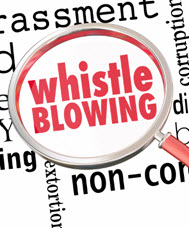Author Archives: Jay Butchko

What is the Dodd-Frank Act?
The Dodd-Frank Act’s official name is the Dodd-Frank Wall Street Reform and Consumer Protection Act, which was passed in 2010 during the Obama administration to address concerns surrounding the 2008 financial crisis. It gets its name from U.S. Senator Christopher J. Dodd and U.S. Representative Barney Frank, who were the original sponsors. It enhances… Read More »

What to Know about Investing in Municipal Bonds
If you’re considering different investment options, municipal bonds may be a viable option. Municipal bonds can be worthwhile if you’re looking for tax-free income streams while preserving capital. What are Municipal Bonds? Often called “munis” for short, municipal bonds are issued by various government entities and U.S. territories. There are two varieties of municipal… Read More »

Involuntary Dissociation with Florida LLCs
Newly formed LLCs in Florida run the risk of drafting an operating agreement that is missing key elements, like what to do when the LLC members reach a deadlock. Even if your LLC does not have an operating agreement that discusses how to remove a member, Florida’s Revised Limited Liability Company Act (the Act)… Read More »

Instituting a Deadlock-Breaking Mechanism in Your LLC Operating Agreement
Disagreements between LLC members, at some tpoint, are inevitable. When members fail to reach an agreement on certain material matters, or set a dispute resolution procedure to break a tie vote, it is typically referred to a “deadlock.” Deadlocks can break down business processes, cause efficiency problems and loss of revenue, present distractions and… Read More »

Dissolving an LLC in Florida
When starting a new LLC, there is typically optimism that the business will be successful and that the members will get along well. In reality, however, things happen over time and disputes may arise between members in an LLC. In these cases, there is a some chance the LLC will be headed to what… Read More »

What is a Reverse False Claim?
Most qui tam whistleblower lawsuits under the False Claims Act involve a Defendant who has made a fraudulent “claim” for money upon the government. For example, when a hospital sends a bill to Medicare for a medical procedure that was never performed, the hospital has made a “claim” for money upon the government. If… Read More »

False Claims Act: Top Health Care Recoveries for Fiscal Year 2017
There’s no denying that health care fraud accounts for a large percentage of the claims that qualify under the Federal False Claims Act (FCA). According to the Justice Department, of the more than $3.7 billion in settlements and judgments recovered in fiscal year 2017, $2.4 billion of them involved the health care industry. Claims… Read More »

Whistleblowers and Wildlife Crime
When we talk about qui tam litigation, whistleblowers, and the Federal False Claims Act, some people think it’s primarily related to the healthcare industry. While the healthcare industry certainly makes up a chunk of the active lawsuits, especially those under the Federal False Claims Act, there are other areas where whistleblowers could play an… Read More »

Potential Whistleblowers Take Note of Employer Monitoring
If you’re working in an environment where you’ve suddenly become aware of illegal or unethical behavior, especially that which might qualify under a whistleblower case, you need to stop and think for a minute. It’s critical to consider all your future actions once you’ve uncovered something worth reporting, before you report anything. In many… Read More »

Stark Law and Qui Tam Cases
Stark Law violations are a source of referrals for whistleblower claims, or qui tam lawsuits under the False Claims Act (FCA). Stark law refers to Section 1877 of the Social Security Act, 42 U.S.C. 1395nn, which deals with physician self-referrals. Stark Law Defined Under the Social Security Act provisions, Stark Law: Prohibits a physician… Read More »
